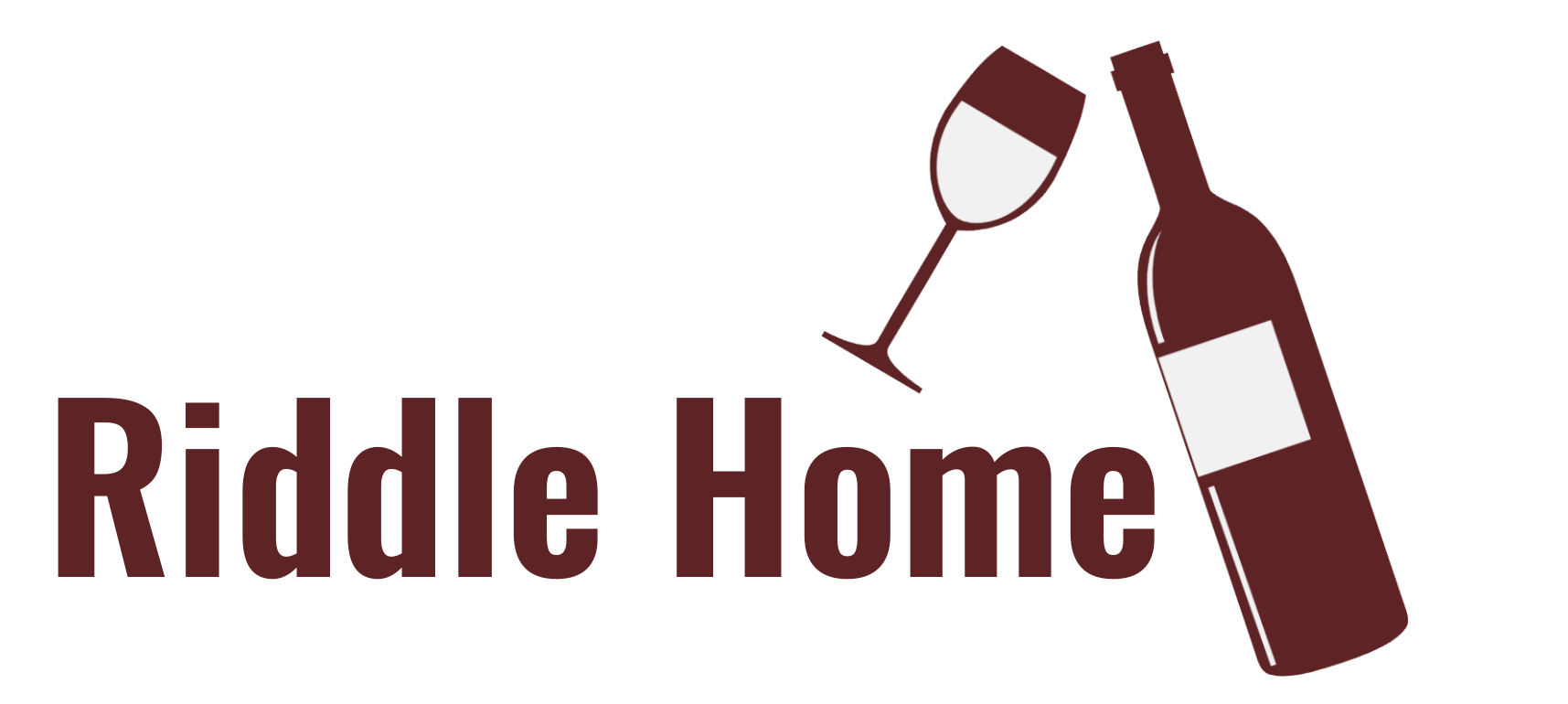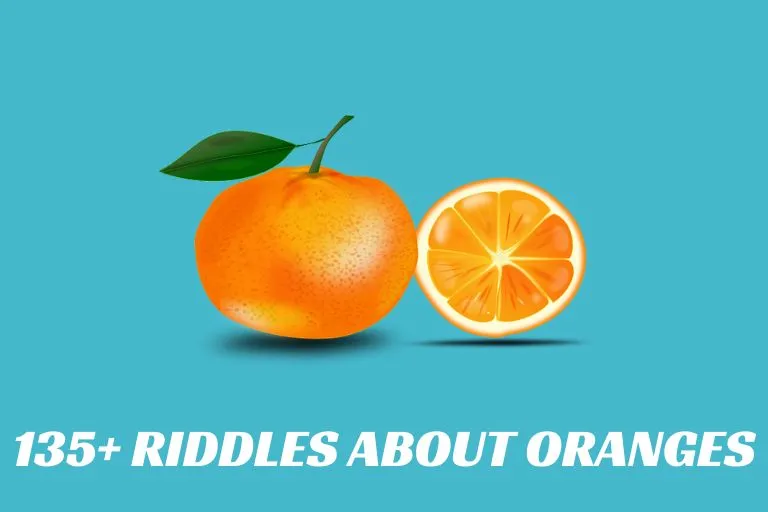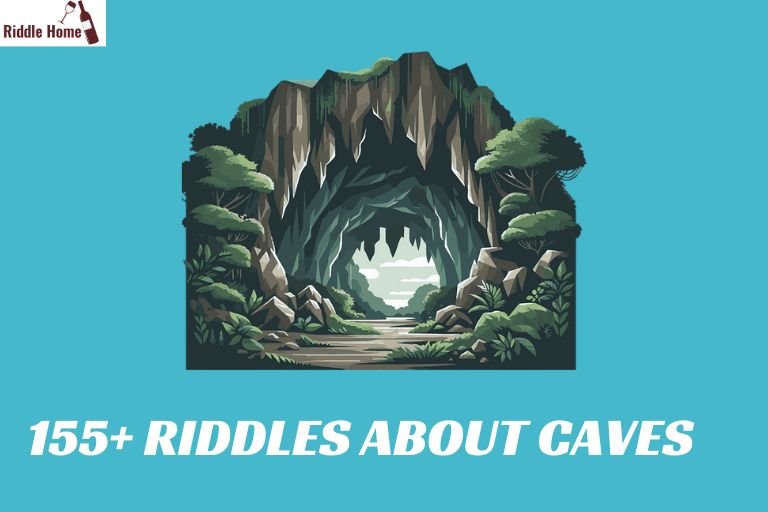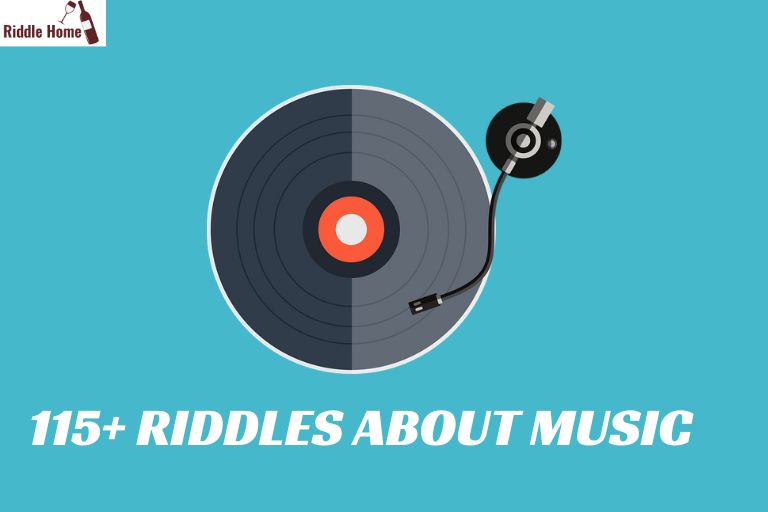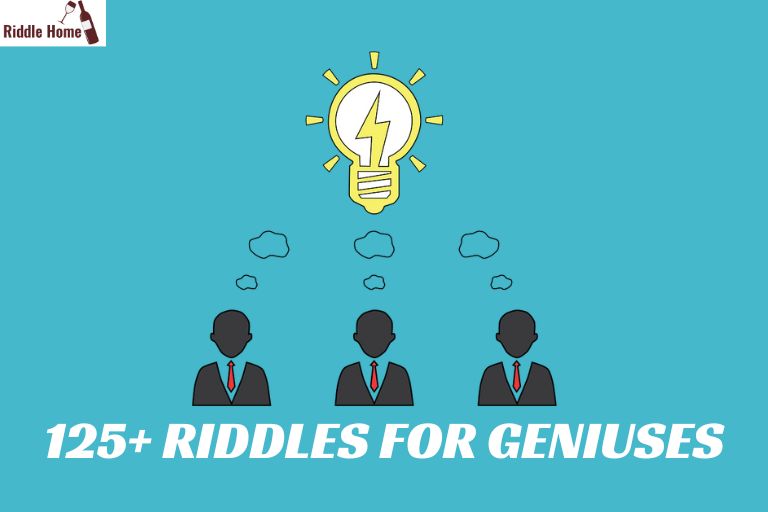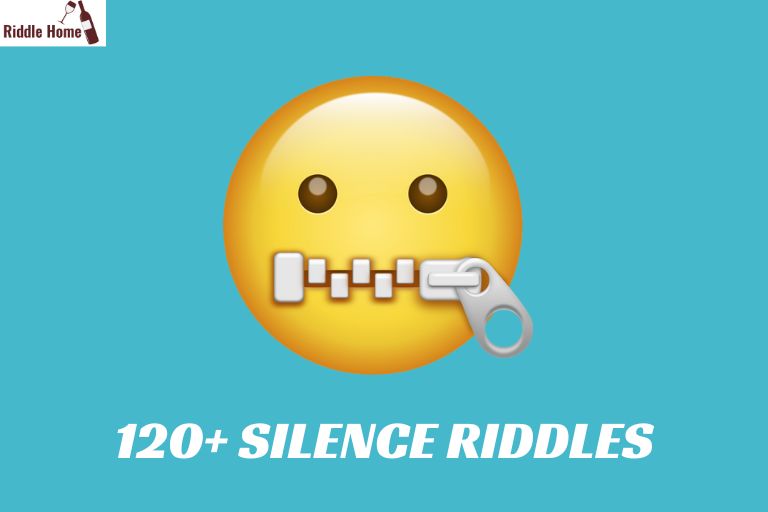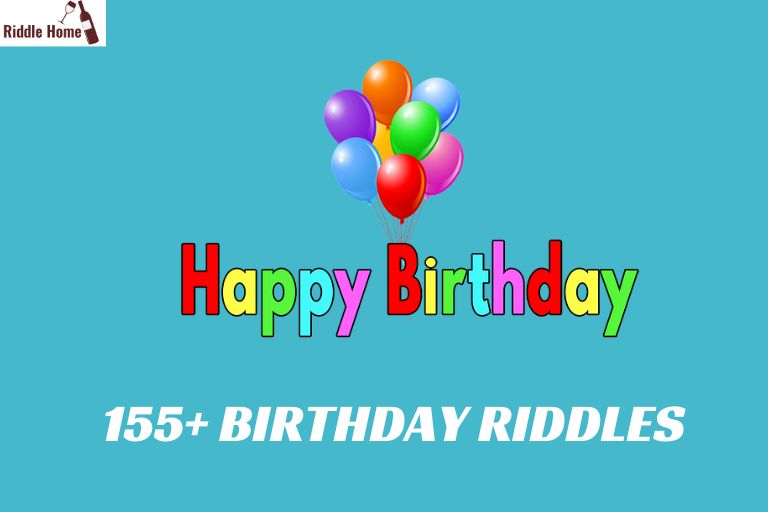Best 115+ Riddles About Lies: Can You Spot the Truth?
Riddles have been a source of entertainment, intellectual stimulation, and a great way to keep your brain sharp.
Whether you’re a puzzle enthusiast or someone who loves a good challenge, riddles that focus on lies are intriguing because they test your ability to differentiate between truth and deception.
Lies can be tricky, and riddles about them can offer a unique twist on the usual mind-bending puzzles.
In this article, we’ve compiled 117 riddles about lies. These riddles not only challenge your thinking but also delve deep into the concepts of truth and falsehood. Let’s see if you can figure out which answers are deceiving and which are true!
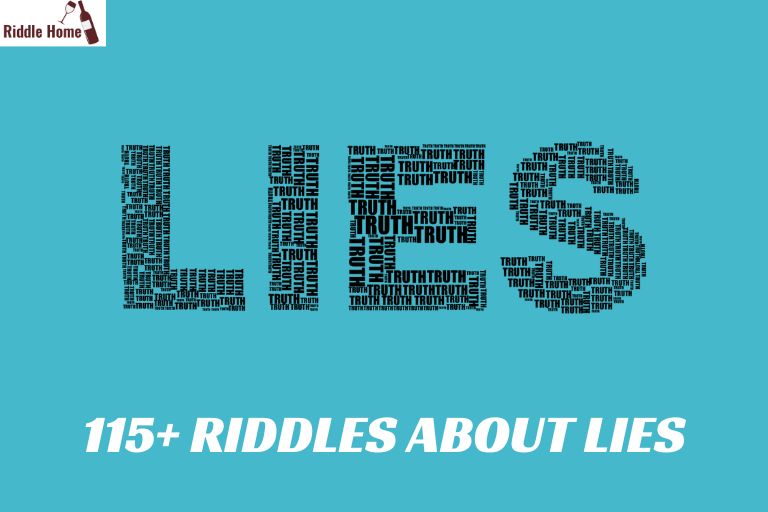
1. The Honest Judge
Riddle: A judge is known for telling the truth, but he always lies when he says, “I’ll tell you the truth.” What happens if the judge says he will tell you the truth? Answer: He’s lying, so he won’t tell the truth.
2. The Deceptive Door
Riddle: There are two doors in front of you: one leads to freedom, and the other leads to certain doom. One guard tells the truth, and the other lies. You can ask one question to find the right door. What do you ask? Answer: “If I were to ask the other guard which door leads to freedom, which one would they point to?” Then, choose the opposite door.
3. The Liar’s Statement
Riddle: Someone says, “I always lie.” Are they telling the truth? Answer: No. If they always lie, then their statement is a lie, meaning they don’t always lie.
4. The Two Friends
Riddle: One of two friends always lies, and the other always tells the truth. They give you the following statements:
- Friend 1: “Friend 2 will tell you I always lie.”
- Friend 2: “Friend 1 always lies.” Who is the truth-teller? Answer: Friend 1 is the truth-teller, and Friend 2 is the liar.
5. The Unreliable Witness
Riddle: A witness says, “I am lying.” What do you conclude about their statement? Answer: If the witness is telling the truth, then they are lying, which creates a paradox. They must be lying, meaning they aren’t telling the truth.
6. The Lying Paradox
Riddle: A man says, “I’m lying right now.” Is he telling the truth? Answer: This is a paradox. If he is lying, then he’s telling the truth, but if he’s telling the truth, then he’s lying.
7. The Disguised Liar
Riddle: A liar is asked whether he is lying. If he answers truthfully, what happens? Answer: He can’t answer truthfully, because it would contradict the fact that he is lying.
8. The Reverse Logic
Riddle: A person says, “If I am lying, then I will tell you that I am not lying.” What should you believe? Answer: The statement is a logical loop, and you cannot determine the truth. It’s a paradox.
9. The Double Deceiver
Riddle: If two liars are speaking, and one says, “I always tell the truth,” what is the truth? Answer: Both are lying, so their statement about telling the truth is a lie.
10. The False Prophet
Riddle: A person says, “If you believe I’m a liar, then I am telling the truth.” What do you believe? Answer: If you believe they are a liar, then they are telling the truth, creating a contradiction.
11. The Impossible Liar
Riddle: A man says, “I never lie.” How can you prove whether he is lying or not? Answer: You can’t. If he says he never lies, the statement could be a lie or the truth, but there’s no way to prove it definitively.
12. The Lying Clock
Riddle: A clock says, “The time is exactly 12 o’clock.” The clock is lying. What is the time? Answer: It could be any time other than 12 o’clock.
13. The Confused Answer
Riddle: A liar answers a question with a statement that contradicts itself. What is the most logical conclusion about their answer? Answer: The liar’s answer is false, as it creates a contradiction within itself.
14. The Truth-teller’s Puzzle
Riddle: A truth-teller says, “I will never lie to you.” What should you expect from them? Answer: They will always tell the truth, as they claim.
15. The Multiple Lies
Riddle: A person says, “If I tell you I’m lying, then I’m telling the truth.” What do you conclude? Answer: They are lying. The paradox forces their statement to be false.
16. The Single Question
Riddle: You meet two people, one who always lies and one who always tells the truth. You need to ask one question to figure out who is who. What do you ask? Answer: “If I were to ask you whether you always lie, would you say yes?”
17. The Lying Paradox
Riddle: A person says, “Everything I say is a lie.” Are they lying? Answer: Yes, because if everything they say is a lie, then their statement itself is a lie.
18. The Unreliable Testimony
Riddle: A person says, “I am lying about the statement I just made.” What do you conclude? Answer: This is a paradox because if they are lying, they are telling the truth, but if they are telling the truth, they are lying.
19. The Truth and Lies
Riddle: A man says, “I’m not lying when I say I’m telling the truth.” What do you believe? Answer: The statement contradicts itself. If he’s not lying, then he’s telling the truth. If he’s lying, he’s not telling the truth.
20. The Liar’s Test
Riddle: A person says, “I am not lying right now.” How can you verify whether they’re lying? Answer: You can’t verify it with certainty. If they’re lying, their statement is false.
21. The Paradox of Lies
Riddle: A person says, “I always lie, except when I’m telling the truth.” How can you trust them? Answer: You cannot trust them. This creates a paradox that doesn’t allow for a clear answer.
22. The Two Lies
Riddle: Two people say, “I am lying right now.” Can both of them be lying? Answer: No. If both were lying, then the statement that they are lying would be true, which is a contradiction.
23. The Liar’s Circle
Riddle: A liar says, “I am lying, but I’m telling the truth about my lies.” What’s the truth? Answer: The statement is self-contradictory, so there’s no truth in it.
24. The Lying Farmer
Riddle: A farmer says, “I always lie when I’m asked about my farm.” Is the farmer telling the truth? Answer: No. If they always lie about their farm, then their statement is false.
25. The Liar and the Truth-teller
Riddle: One person says, “I am the truth-teller.” The other says, “I am the liar.” Who is who? Answer: The person who says “I am the truth-teller” is lying. The person who says “I am the liar” is the truth-teller.
26. The Lying Paradox II
Riddle: A person says, “I am lying.” What do you conclude? Answer: This is a paradox. If they are lying, then their statement is true, but if their statement is true, then they are lying.
27. The Question of Lies
Riddle: A person says, “If I tell you I’m lying, I will be lying.” What does this mean? Answer: It creates a paradox. If they’re telling the truth, then they’re lying, but if they’re lying, they’re telling the truth.
28. The Truth-Teller’s Dilemma
Riddle: A person claims, “I always lie except when I tell the truth.” What does this mean for their statements? Answer: It’s a paradox. There’s no way to determine when they are lying or telling the truth.
29. The Lying Twins
Riddle: One twin always tells the truth, and the other always lies. You ask one twin, “What would your brother say if I asked him who the liar is?” What’s the answer? Answer: The twin will point to the truth-teller because the liar will lie about who the liar is.
30. The Liar’s Word
Riddle: A person says, “I’m lying about this statement.” How do you interpret this? Answer: It’s a paradox because if they are lying, they are telling the truth, but if they are telling the truth, they are lying.
31. The Self-Contradiction
Riddle: A person says, “I am telling the truth when I say I’m lying.” What’s the truth? Answer: This is a paradox because the statement contradicts itself.
32. The Misleading Puzzle
Riddle: A person says, “If I were lying, I would tell you that I am lying.” What is the truth? Answer: If they were lying, the statement would be false, so the truth is they are telling the truth.
33. The Liar’s Dilemma
Riddle: A person says, “I’m telling the truth right now.” Can you trust them? Answer: You can’t. If they’re telling the truth, then their statement is true, but if they’re lying, then it’s false.
34. The Hidden Lie
Riddle: A person says, “I’m not lying now.” Can you believe them? Answer: You can’t be sure. If they’re lying, then their statement is false.
35. The Repeated Lie
Riddle: A person says, “I am lying right now. I will continue to lie.” Can you trust them? Answer: No. The statement itself is contradictory because if they keep lying, they’re not telling the truth.
36. The Puzzle of Deception
Riddle: A liar says, “I have never told a lie.” What do you conclude? Answer: Since the person is a liar, their statement is false, meaning they’ve lied at least once.
37. The Conflicted Statement
Riddle: A person says, “I am lying when I say I am telling the truth.” What is the truth? Answer: This is a paradox because if they are lying, they are telling the truth, but if they are telling the truth, they are lying.
38. The Two Roads
Riddle: You are at a fork in the road, and one path leads to safety while the other leads to danger. A person standing at the fork says, “If you go down this path, you will find danger.” Which path do you choose? Answer: You should take the opposite path. If the person is lying, the path they mentioned is safe.
39. The Lying Leader
Riddle: A leader says, “I always tell the truth.” But then, they contradict themselves by saying, “I lie sometimes.” What do you believe? Answer: The leader is lying because they can’t tell the truth if they admit to lying.
40. The Liar’s Challenge
Riddle: A liar says, “I always lie.” What do you think? Answer: This is a paradox. If they always lie, then the statement itself is a lie.
41. The Missing Link
Riddle: A person says, “I never lie, but I also tell lies.” What should you think about their statement? Answer: It’s contradictory. The statement itself is false, so they are lying.
42. The Confusing Statement
Riddle: A person says, “The last thing I said was a lie.” What do you believe? Answer: The statement is false because if the last thing they said was a lie, then their current statement is true.
43. The Lying Oracle
Riddle: A so-called oracle says, “Everything I say is a lie.” Is the oracle trustworthy? Answer: No, the oracle is not trustworthy. If everything they say is a lie, their statement is false.
44. The Stranger’s Promise
Riddle: A stranger promises, “I’ll tell you the truth about everything except this one thing.” Can you believe them? Answer: No, if they are telling the truth about everything except one thing, then you can’t trust the exception.
45. The Circular Liar
Riddle: A person says, “I always tell lies when I speak, but I also tell the truth about my lies.” What does this mean? Answer: This is a paradox that cannot be resolved. It’s self-contradictory.
46. The Constant Lie
Riddle: A person says, “I am always lying.” Can they be telling the truth? Answer: No. If they are always lying, their statement is a lie.
47. The Trustworthy Liar
Riddle: A person says, “I tell lies only when I’m asked to tell the truth.” Is this possible? Answer: No, because if they are asked to tell the truth, they can’t lie at that moment.
48. The Misleading Answer
Riddle: A liar says, “I will never tell a lie in the future.” Can you trust them? Answer: No, because they are a liar, so this statement is likely false.
49. The Half-Truth
Riddle: A person says, “I am half-lying right now.” What is the truth? Answer: It’s unclear. Since they are half-lying, part of their statement is false, and part of it may be true.
50. The Lying Question
Riddle: A person says, “If you ask me a question, I will lie about the answer.” What should you do? Answer: You should ask a question where the lie will reveal the truth, such as, “What is the answer to the question I’m asking?”
51. The Unreliable Narrator
Riddle: A person says, “The statement I made a minute ago was a lie.” Can you trust them? Answer: No, because if the statement was a lie, then their current statement might be true, creating a paradox.
52. The Lying Philosopher
Riddle: A philosopher says, “I am always lying, except when I tell the truth.” What does this mean? Answer: It’s a paradox. You cannot tell when they are lying or telling the truth.
53. The Puzzle of Lies
Riddle: A person says, “I tell the truth when I’m asked, but I never give direct answers.” What does this mean? Answer: It’s confusing. If they never give direct answers, they might be indirectly lying.
54. The Silent Liar
Riddle: A person claims, “I am silent right now because I am always lying when I speak.” What is true? Answer: If they’re silent, they’re not lying, which contradicts their statement.
55. The Liar’s Game
Riddle: A person says, “I always tell the truth except when I lie.” Can you believe them? Answer: This is contradictory. If they always tell the truth except when they lie, you can’t trust their statement.
56. The Half-Truths
Riddle: A person says, “I tell half-truths and half-lies.” What is the truth? Answer: It’s unclear, as the person could be telling half of the truth or half of a lie, making their statement unreliable.
57. The Misleading Habit
Riddle: A person says, “I never lie, but I might exaggerate the truth.” Can you trust them? Answer: Not fully, as exaggerating the truth is still a form of lying.
58. The Eternal Lie
Riddle: A person says, “I will never lie again.” Should you trust them? Answer: No, because a liar’s promise to never lie is itself a lie.
59. The Liar’s Paradox II
Riddle: A person says, “I am lying right now.” What does that imply? Answer: This creates a paradox, as their statement cannot be true and false simultaneously.
60. The Repeated Lie
Riddle: A person says, “I am lying every time I speak.” Do you believe them? Answer: No, because if they always lie, their statement would contradict itself.
61. The Trustworthy Liar
Riddle: A liar says, “I tell the truth 99% of the time, but 1% of the time, I lie.” Should you believe them? Answer: No, even a small lie makes the statement unreliable.
62. The Contradictory Truth
Riddle: A person says, “Everything I say is a lie, except for this sentence.” What’s true? Answer: It’s a paradox. The sentence itself can’t be true or false, making the entire statement unreliable.
63. The Logical Liar
Riddle: A person says, “If I’m lying, then I’m telling the truth.” What is the truth? Answer: This creates a paradox. If they’re lying, their statement is true, but if they’re telling the truth, then they’re lying.
64. The Liar’s Commitment
Riddle: A person says, “I have never told a lie in my life.” What should you think? Answer: They are lying, because no one can claim to have never told a lie.
65. The Elusive Answer
Riddle: A person says, “The answer to this question is a lie.” What is the answer? Answer: This is a paradox. If the answer is a lie, it cannot be truthfully provided.
66. The Inconsistent Liar
Riddle: A person says, “I always lie except when I am asked about the weather.” Can you trust them? Answer: You can trust them about the weather, but not anything else.
67. The Eternal Deceiver
Riddle: A person says, “I lie every day, except when I speak about the past.” Should you believe them? Answer: It’s unclear. If they lie every day, their statements about the past might also be lies.
68. The Truth in the Lie
Riddle: A person says, “I am lying right now, but I tell the truth about my lies.” What does this mean? Answer: It’s a paradox. You can’t tell when they’re lying or telling the truth.
69. The Stranger’s Deception
Riddle: A stranger says, “I only tell lies when I’m asked about my past.” Can you trust them? Answer: No, because they might lie about the past even if they’re not lying about the present.
70. The Liar’s Promise
Riddle: A person promises, “I will never lie again, but I have lied once in my life.” Should you believe them? Answer: No, because they have already lied, breaking their promise.
71. The Deceptive Mind
Riddle: A person says, “I lie every time I speak about my feelings.” Can you trust their feelings? Answer: No, because if they’re lying about their feelings, their statements are not truthful.
72. The Inverted Truth
Riddle: A person says, “I’m lying about everything, including this statement.” Can they be telling the truth? Answer: No, because if they were lying, their statement about lying would contradict itself.
73. The Honest Liar
Riddle: A person says, “I tell the truth about everything except my lies.” Can you trust their statement? Answer: No, because the admission of lying makes their statement unreliable.
74. The Contradictory Deceiver
Riddle: A person says, “I lie about everything except my name.” Can you believe them? Answer: You can trust their name, but anything else they say is likely false.
75. The Double-Edged Lie
Riddle: A person says, “I always lie, but only when I’m asked to tell the truth.” What’s the truth? Answer: They’re always lying when asked to tell the truth, so it’s a paradox.
76. The Puzzle of Half-Truths
Riddle: A person says, “I only tell half the truth, never a whole one.” What is the truth? Answer: It’s unclear. The person might be telling only part of the truth, which is still misleading.
77. The Deceptive Path
Riddle: A liar says, “The path on the left is the dangerous one.” What path should you take? Answer: You should take the right path, as the liar is likely deceiving you.
78. The Liar’s Identity
Riddle: A person says, “I’m lying about everything except my name.” What is the truth? Answer: You can trust their name, but anything else they say is probably a lie.
79. The Self-Referential Lie
Riddle: A person says, “I lie whenever I tell the truth.” What does this mean? Answer: It’s a paradox, as telling the truth would mean they’re lying.
80. The Inconsistent Answer
Riddle: A person says, “I always lie, but I tell the truth when I’m talking about myself.” Can you believe them? Answer: You can trust them when they talk about themselves, but not when they talk about anything else.
81. The Lying Promise
Riddle: A person says, “I never tell the truth, but I’ve never lied about anything either.” What is the truth? Answer: This is contradictory. If they never tell the truth, they are lying about not lying.
82. The Liar’s Dilemma
Riddle: A person says, “I am lying right now.” Is the statement true or false? Answer: It’s a paradox. If the person is lying, their statement is true, which creates a contradiction.
83. The Deceptive Oath
Riddle: A person swears, “I will always tell the truth from now on.” Can they be trusted? Answer: No, because they are making an oath, which a liar is less likely to keep.
84. The False Witness
Riddle: A person says, “I only lie when I speak about the future.” Can you believe them? Answer: No, because they might lie about the future, and you can’t know for sure when they’re telling the truth.
85. The Invisible Truth
Riddle: A person claims, “I never lie, but I will never tell the full truth either.” What does this mean? Answer: This suggests that they are always hiding part of the truth, making them untrustworthy.
86. The Foolish Liar
Riddle: A person says, “I always tell lies, except when I tell the truth.” Can you trust them? Answer: No, because their statement creates confusion and contradicts itself.
87. The Paradox of Lies
Riddle: A person says, “I’m lying right now.” If they are lying, is it true or false? Answer: It’s a paradox. If they’re lying, their statement can’t be both true and false.
88. The Conditional Lie
Riddle: A person says, “If I’m lying, then I’m telling the truth.” What should you make of their statement? Answer: This is a contradiction, as both cannot be true at the same time.
89. The One Who Always Lies
Riddle: A person says, “I am always lying.” Can you believe them? Answer: No, because if they’re always lying, this statement itself is a lie.
90. The False Claim
Riddle: A person says, “I am never lying except when I claim to be lying.” Can they be trusted? Answer: No, because if they claim to be lying, they are likely telling the truth, which creates confusion.
91. The Trustworthy Liar
Riddle: A person says, “I never lie about anything important, only about small things.” Can you trust them? Answer: No, because lying about any aspect can undermine trust.
92. The Paradoxical Statement
Riddle: A person says, “I always lie except for this statement.” Is this true? Answer: It’s a paradox. If their statement is true, it would mean they’re lying, which doesn’t make sense.
93. The Honest Liar
Riddle: A person claims, “I always lie, but I’m being truthful now.” Can you trust them? Answer: No, because if they always lie, their statement cannot be truthful.
94. The Liar’s Puzzle
Riddle: A person says, “I lie about everything except my name.” Should you believe them? Answer: You can trust their name, but everything else is probably a lie.
95. The Exaggerating Liar
Riddle: A person says, “I tell half the truth and half the lie.” What does that imply? Answer: It means you can never fully trust them, as their statements are always partly false.
96. The Lying Path
Riddle: A person says, “I am the path to the truth.” Should you follow them? Answer: No, because a liar’s path to the truth is likely misleading.
97. The Liar’s Word
Riddle: A person says, “I will never tell a lie again, but I have lied before.” Should you trust them? Answer: No, because they have lied before, and their promise might be a lie.
98. The Contradictory Claim
Riddle: A person says, “I always lie, except when I’m telling the truth.” What is the truth? Answer: It’s a paradox. The person cannot always lie and tell the truth at the same time.
99. The Liar’s Request
Riddle: A person says, “Ask me anything, and I will lie to you.” Can you trust their answer? Answer: No, because they are guaranteed to lie, making their response unreliable.
100. The Liar’s Confession
Riddle: A person says, “I only tell lies, but I’m telling the truth right now.” Can you believe them? Answer: No, because if they only lie, their statement is contradictory.
101. The Half-Lie
Riddle: A person says, “I tell only half the truth and half the lie.” What is the outcome? Answer: You can’t trust them completely, as their statements are only partially true.
102. The Liar’s Gamble
Riddle: A person says, “I never tell the truth, but today I am telling the truth.” Can they be trusted? Answer: No, because if they’ve never told the truth before, it’s impossible to trust them now.
103. The False Assumption
Riddle: A person says, “I will always tell the truth unless I’m asked a specific question.” Can you trust them? Answer: No, because their truthfulness is conditional, making their statements unreliable.
104. The Deceptive Denial
Riddle: A person says, “I am lying right now, but you shouldn’t worry.” Should you trust them? Answer: No, because if they are lying about lying, you can’t know the truth.
105. The Impossible Truth
Riddle: A person says, “Everything I say is a lie, except when I tell the truth.” What’s true? Answer: This is a paradox, as it’s impossible for everything they say to be both a lie and the truth at the same time.
106. The Forever Lie
Riddle: A person says, “I am always lying.” Should you believe them? Answer: No, because if they are always lying, their statement is a lie.
107. The Stranger’s Lying Habit
Riddle: A stranger says, “I only lie to people I don’t know.” Can you trust them? Answer: No, because they are likely lying to you, even if you don’t know them.
108. The Truthful Liar
Riddle: A person says, “I always lie, but I’m being honest now.” Can you trust their words? Answer: No, because if they always lie, their claim of honesty is itself a lie.
109. The Liar’s Rule
Riddle: A person says, “I will lie unless I tell you the truth.” What should you make of this? Answer: They are unreliable, as it’s unclear when they are telling the truth.
110. The Perpetual Lie
Riddle: A person says, “I will always tell a lie and never the truth.” Can you trust them? Answer: No, because their statement creates a contradiction.
111. The Liar’s Logic
Riddle: A person says, “I am lying, and I will continue lying for the rest of my life.” Is this true? Answer: It’s a paradox, as if they are lying about this, the statement becomes self-contradictory.
112. The Self-Defeating Statement
Riddle: A person says, “If I tell a lie, I will always admit it.” Should you trust them? Answer: No, because a liar may lie and deny their admission, making their words unreliable.
113. The Lying Habit
Riddle: A person says, “I lie only when it’s convenient for me.” Can you trust them? Answer: No, because they lie when it suits them, making their statements unpredictable.
114. The Liar’s Paradox III
Riddle: A person says, “I always lie, but not when I’m telling the truth.” What is the truth? Answer: This creates a paradox, as the person cannot lie and tell the truth at the same time.
115. The Deceitful Claim
Riddle: A person says, “I have never told a lie.” Can you believe them? Answer: No, because everyone tells a lie at some point, so their statement is likely false.
116. The Liar’s Identity II
Riddle: A person says, “I am a liar.” Can they be trusted? Answer: No, because if they are a liar, their statement is probably false.
117. The Final Lie
Riddle: A person says, “I will always lie to you.” Should you believe them? Answer: No, because if they are lying, their statement is contradictory.
Conclusion: Riddles About Lies
And that’s the conclusion of 117 riddles about lies! Each riddle is designed to make you think and challenge the concept of truth and deception.
Whether you love paradoxes or just enjoy a good brain teaser, these riddles offer a fun and engaging way to test your logical thinking.
